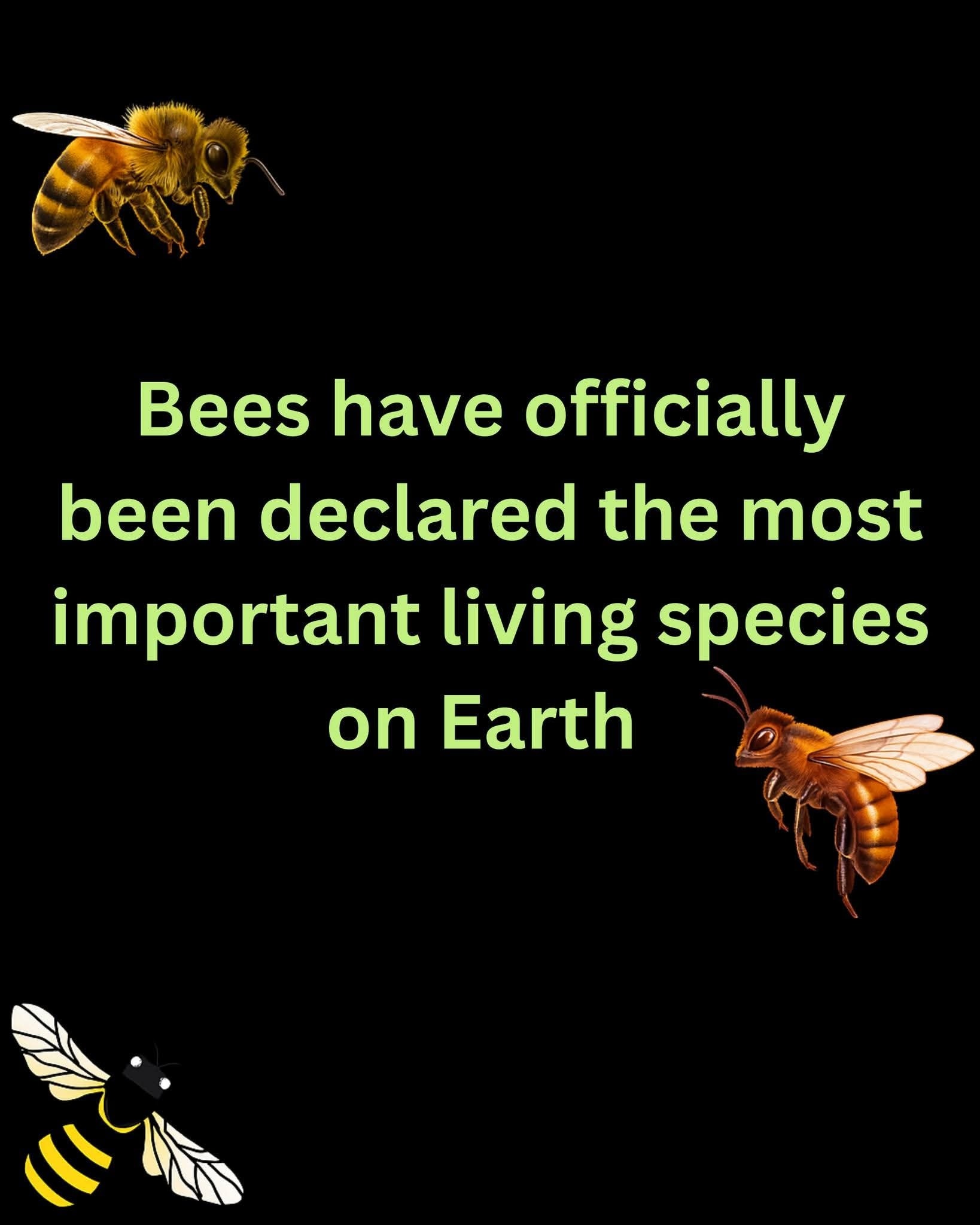
Bees might be small, but their impact on life as we know it is massive. In fact, scientists have officially named them the most important species on the planet—and with good reason. Their daily work as pollinators underpins entire ecosystems and our global food supply. Yet despite their vital role, bee populations are plummeting at an alarming rate.
So why are bees so essential, and what can we do to stop their disappearance?
Bees Keep the World Fed
When you think of bees, you probably picture honey, buzzing gardens, or maybe the occasional sting. But behind the scenes, bees perform a job that’s absolutely crucial to our survival: pollination. This process allows plants to reproduce, and in turn, produce the fruits, vegetables, nuts, and seeds that make up the majority of our diet.
“They pollinate 70% of the crops that feed 90% of the world.”
From apples and almonds to tomatoes, strawberries, and even coffee—bees make it all possible. Without them, not only would our plates look empty, but prices for basic foods would skyrocket, affecting everything from nutrition to global economies.
The Collapse of a Chain Reaction
Bees don’t just serve humans. Their pollination supports entire food chains and biodiversity. Birds, mammals, and insects rely on the plants bees pollinate. Remove bees from the picture, and entire ecosystems begin to unravel.
“They support biodiversity and keep ecosystems healthy.”
Imagine wildflowers disappearing, animal species declining due to lack of food, and natural landscapes transforming for the worse. That’s the very real risk we face without pollinators like bees.
So What’s Killing the Bees?
Despite their importance, bees are vanishing—and fast. Over the past few decades, both wild and domesticated bee populations have seen massive declines across the globe. The culprits are clear:
- Pesticides: Especially neonicotinoids, which are lethal to bees even in small doses. These chemicals interfere with bees’ nervous systems, making it harder for them to navigate, forage, and survive.
- Habitat destruction: Urbanization, monoculture farming, and deforestation strip bees of their natural homes and food sources. Fewer wildflowers and nesting areas mean fewer bees.
- Climate change: Shifting weather patterns affect flowering seasons and food availability, disrupting bees’ life cycles.
Combined, these factors create what scientists call “colony collapse disorder”—a devastating phenomenon in which the majority of worker bees abandon a hive, leaving behind the queen, food, and a few nurse bees.
The Alarming Reality
We’re not talking about a distant threat. This is happening now.
- In some areas, bee populations have dropped by more than 50%.
- The U.S. has lost over 40% of its honeybee colonies in recent years.
- Wild bee species, which are even harder to monitor, are vanishing without headlines or outcry.
“No bees = No food. No future.”
It’s a terrifying equation, but it’s accurate. If bees disappear, our ability to grow food disappears too.
What You Can Do to Help
The good news? We can all do something. While governments and scientists work on big-picture solutions, everyday individuals can make a meaningful impact by taking simple actions:
🌼 Plant Bee-Friendly Flowers
Bees need diverse, pesticide-free blooms to thrive. Native wildflowers, herbs like lavender and thyme, and flowering trees are all great options. Even a balcony planter can help.
🚫 Avoid Harmful Chemicals
Stop using pesticides, herbicides, and synthetic fertilizers in your garden. These chemicals don’t just harm pests—they harm pollinators too.
🌾 Support Sustainable Agriculture
Buy organic or locally-grown produce when possible. Organic farms typically avoid harmful chemicals and preserve biodiversity, giving bees a better chance.
🐝 Create Safe Habitats
Leave a patch of wild in your yard. Provide fresh water. Avoid mowing dandelions—they’re an early-season food source for bees.
📣 Raise Awareness
Share information. Talk about it. Encourage local policies that protect pollinators. The more people know, the more action we can take together.
Why It Matters
Bees are silent workers, often overlooked, yet they hold together some of the most important threads in our ecological web. Their disappearance wouldn’t just mean less honey—it would mean a cascade of environmental, agricultural, and economic disasters.
But it’s not too late.
As individuals, communities, and societies, we have the tools and knowledge to reverse the damage. It starts with awareness—and continues with action.
Let’s protect the pollinators that protect us.
Because saving bees isn’t just about saving insects. It’s about saving ourselves.



